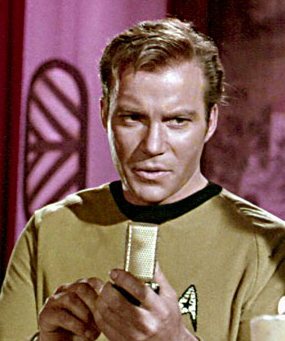Sometimes, however, I "find" things the writers didn't intend...
I was recently inspired by a friend to stroll again through the memorable seasons of Star Trek: the Next Generation. In the episode "Starship Mine" the Enterprise is taken over by a group of bandits who are after some of the ship's propulsion components, which they attempt to steal while the ship's crew is on "shore leave", on a starbase. Only Cpt. Picard remains on board, unnoticed by the bandits.
When Picard is discovered, they demand to know his name, and he answers, "Mot. My name is Mot. I'm the barber." It makes sense for Picard to give a false name, because it's fairly evident that, should the bandits learn he is the captain, they will kill him. But what comes next caused my exegetical ears to perk up.
As the episode proceeds, Picard kills most of the bandit crew. Picard uses an uncharacteristic amount of lethal force in this episode. Picard is a diplomat, usually relying on his ace negotiating skills to to diffuse a tense situation.
The combination of his stated name, "Mot," and the great amount of death Picard causes got me thinking, "Do the writers of Star Trek know Ancient Near Eastern mythology?!"
In ANE mythology (which includes the Old Testament), "death" or מות (mōt) is personified, and often functions in stories and poetry as a character. Since Picard took the name of "Mot", or "Death," I naturally became very intrigued with the writers' apparent mythological prowess. Since Star Trek: the Next Generation already makes frequent reference to Greek mythology, and since Picard is always telling Commander Riker, "You should really read more history," a further reference to Ancient Near Eastern mythology didn't seem like too far of a stretch.
 |
| Mot the Barber |
So, rather than expertly perceiving a subtle allusion to מות, I had rather unintentionally performed a classic case of 'eisegesis'; I had read an obscure mythological reference into the story. Sorry, Mr. Mot. I had you all wrong.




